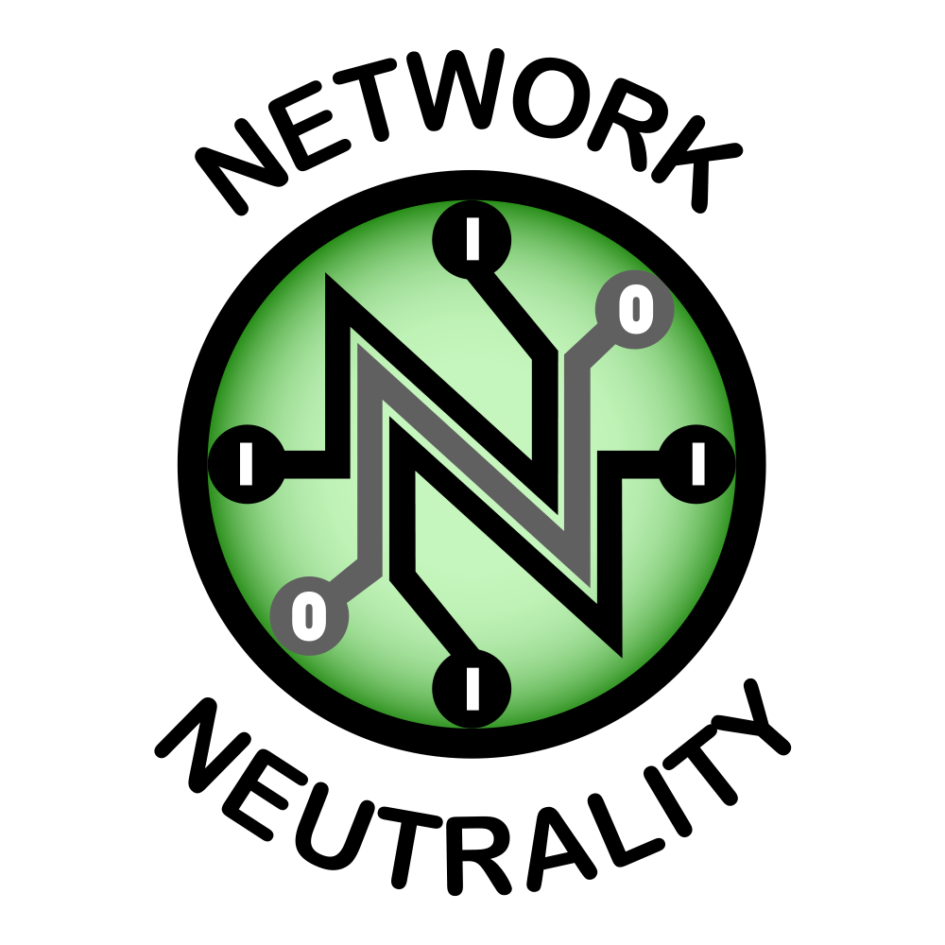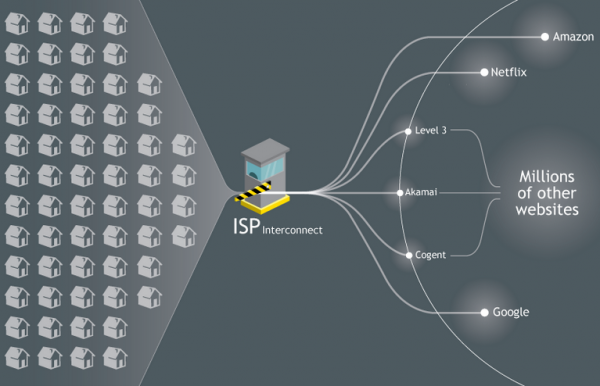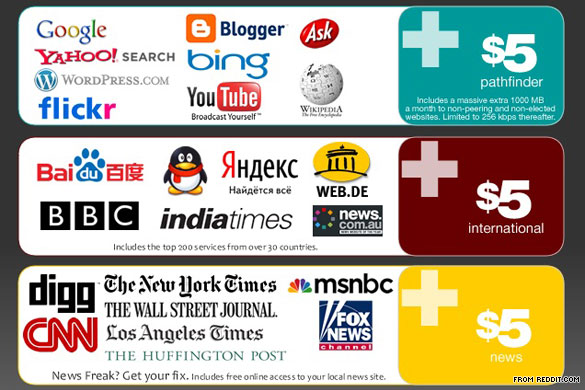Internet is a global system of interconnected networks that connects billions of devices, both wired and wireless, enabling billions of people across the world. The internet is so huge and so powerful that it its utility is unique to each of its user.The world today without Internet is nothing less than an apocalypse.Yet, It is as helpful as it could be vicious. Regardless of the multifaceted nature in defining the ethics of its utility, it is one of the greatest inventions of mankind as yet.
“The Internet is becoming the town square for the global village of tomorrow. “ ~ Bill Gates
The internet was originally created using end-to-end network principle. To a lay man , understanding End-to-end principle and its implementation in the internet is almost brain damaging.But to keep it in simple words, it is this principle which makes internet neutral or a “dumb pipe” . The word “dumb” ,when used here only means that it doesn’t have influence on the data when transferred through its intermediate nodes and that it merely passes on the data from one end to another untouched and unhindered. Internet was originally designed to be a dumb network which provides for the purpose of communication between various end-to-end sources and without these sources, the platform called internet would have no meaning.
According to wikipedia,
“Net neutrality (also network neutrality, Internet neutrality or net equality) is the principle that Internet Service Providers and governments should treat all data on the Internet equally, not discriminating or charging differentially by user, content, site, platform, application, type of attached equipment, or mode of communication.The term was coined by Columbia University media law professor Tim Wu in 2003 as an extension of the longstanding concept of a common carrrier.”
Internet Service Provider is the one who brings internet to your doorstep.
To begin with comprehending this definition, “Net-Neutrality” should be constantly enforced upon all service providers by the regulating or governmental bodies.As of now, there is NO law by constitution which ensures the enforcement of Net-Neutrality in India.The Telecom Regulatory Authority of India (TRAI) is the independent “regulator” of the telecommunications business in India.There seems to be no hurry of any kind to institutionalize net-neutrality and there have been severe violations by many service providers in the past. Recently, Bharti Airtel changed its service terms for 2G and 3G data packs so that VoIP data was excluded from the set amount of free data. A standard data charge of ₹0.04 per 10 KB for 3G service and ₹0.10 per 10 KB (more than ₹10,000.00 for 1GB) for 2G service was levied on VoIP data.This means Skype, Viber and other VoIP (Voice over Internet Protocol) based apps will not run on your mobile data packs.
But to have a holistic picture of what’s going on,one should look at each perspective and discuss the pros and cons on each side.Many internet service provider companies suggested internet companies, like Facebook and Google, to share revenues with them as these internet companies reap huge profits from small investments where as the internet service provider companies invest a lot in building huge networks involving tedious hardware and cable operation. In a way,certain big internet companies do attribute their profits to these big-scale network providers. But this is, after all, an internet service provider profit-making standpoint. Clearly, Telecommunication Companies are annoyed because of the fact that internet applications like Skype, WhatsApp and other chat based and VoIP(Voice over internet protocol) based companies reap huge profits by providing free calls and other cheaper communication options than most of these telecommunication companies. Suddenly the service providers get a pitiable advantage since chat and voice transfer is the basis of their business and it is being offered for relatively lower rates or for free of cost by the internet companies.
Internet companies on the other hand argue that they face equal competition from other internet companies and if there is high traffic on their web-portals it is only due to the quality of service they provide to their users.In addition to this,they are not at all answerable to any network operating company because the ISP companies do not compete on the same level as these internet based companies do.The business constraints are different and they often come under different regulating bodies. Thus, there exists a fair point on the internet-based companies standpoint as well.
USA has “net-neutrality” guidelines which are enforced reasonably through the famous FCC – Federal Communication Commission.Yet, the nature of law is such that constitutional amendments are needed to be made regularly as ingenious business models of MNC’ are based on the loopholes of these regulations.However, there is a huge expectation from the USA’s FCC as it’s law amendment, which is to come by early 2015, will be reflected in many countries.
By compromising net-neutrality , the rules of the basic game play will change and there is a lot of negative consequences at stake. Restriction to access information was always a classical explanation of creating an oblivion.Once an oblivion is made, internet cannot be called a transparent place. Privacy issues arise once Internet Service Providers start controlling what you do over the internet.Service Providing Companies will know more than they have to know.This will give them(companies) a lot of power and scope for more money but this is a threat to the Internet morality and dignity. This is how future of internet might look like :
Once fast lanes are created over the internet and when discrimination takes place in full pace, there will be ground-braking shifts in global market dynamics and all those companies which are immediately benefited from this market scenario will in most probability rule the world, both literally and figuratively.Imagine billions of people being shepherded by Multinational Companies. It is not as if world has not foreseen this dilemma, and free citizens can never be wrong in assuming the worst.All MNCs, politicians, regulators,law makers and law breakers were waiting for this moment to make the most of it.
Thus to solve this paradoxical puzzle over what neutrality means to the free world, we need a judge of highest caliber and credential, the judge is the “user”.
Since the internet is meaningless without the end-user, the user’s stand point should be held in high regard while framing the law.Internet is supposed to be a source of free information and also as a mode of communication.It was the basic underlying principle with which internet was introduced to the world.All these companies don’t really seem to understand the way a healthy system works, or maybe they did not attend their market ethics class 101 .But to provide high quality products for the cheapest possible prices is the unarguable fate of all companies. There should never arise a situation where the user should face any problem due to the internet or be a victim of digital abuse.The vulnerability of a user is manifold if internet does not abide by general equality standards. Users cannot and should not compromise on net-neutrality because the consequences it brings upon them as a whole is too overwhelming to assess. Also, the internet cannot be anything less than transparent to all because not all companies work in the best interests of users, their interests lies in profits and more profits and many companies have controversial boundaries.By obstructing information, companies can create a high potential business model which may not be the way they project it but it is kind of understood that this a golden opportunity to become invincibly powerful. With great power comes great responsibility and often humans tend to forget the responsibility part of power.Users should be aware that false scarcity is being created and that users are deceived into artificial supply- demand infinite circle.
Net Neutrality is being called the First Amendment of the Internet and it is time to ask ourselves some questions:
- Do Multinational Corporations really have a say in what we can access over the internet?
- Wasn’t this whole platform originally made for everybody to share and innovate and promote the ideology of globalization in the first place?
- Does the Internet favor the wealthy?
- Is it not the common-man who should decide the future of internet?
- Is it too much to ask for a democracy in the world’s biggest platform?
In the name of Net-Neutrality , watch this 2-minute song :






Leave a Reply